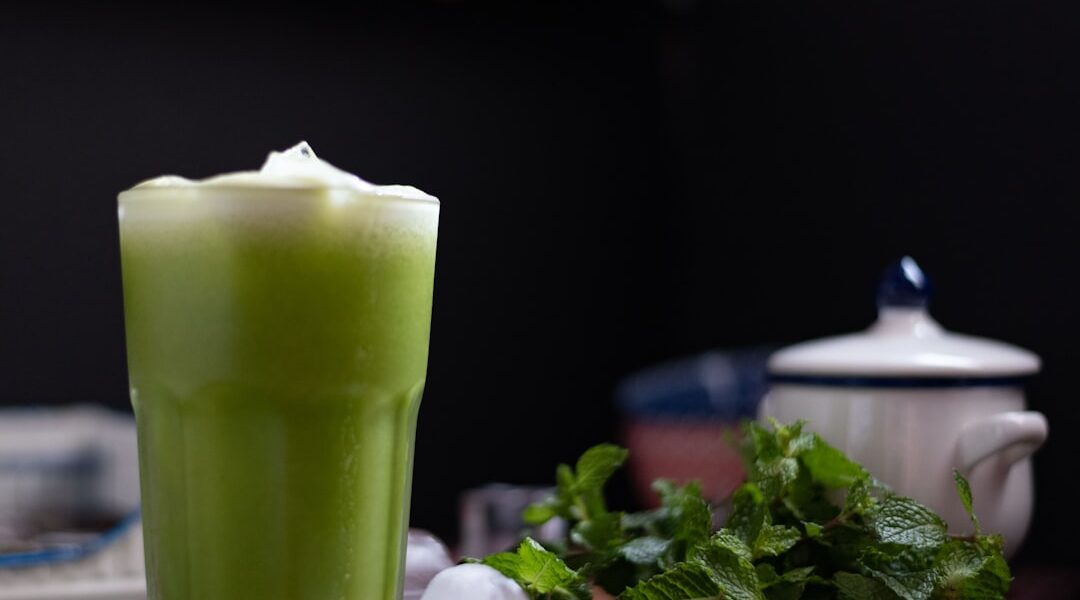In recent years, the term “superfood” has gained significant traction in health and wellness circles, capturing the attention of nutritionists, chefs, and health enthusiasts alike. Superfoods are typically defined as nutrient-rich foods that are particularly beneficial for health and well-being. They are often packed with vitamins, minerals, antioxidants, and other essential compounds that can contribute to overall health.
The allure of superfoods lies not only in their nutritional density but also in their potential to prevent chronic diseases and promote longevity. As consumers become increasingly aware of the impact of diet on health, the demand for these nutrient powerhouses has surged. The concept of superfoods is not entirely new; many cultures have long revered certain foods for their health benefits.
For instance, ancient civilisations such as the Aztecs and Incas valued quinoa and chia seeds for their nutritional properties. However, the modern interpretation of superfoods has expanded to include a wide variety of items, from berries and leafy greens to nuts and seeds. This article delves into the myriad benefits of superfoods, highlights some of the top contenders to include in your diet, and offers practical advice on how to seamlessly incorporate them into your meals.
Summary
- Superfoods are nutrient-rich foods that offer a range of health benefits and can be easily incorporated into your diet.
- Including superfoods in your diet can help boost your immune system, improve digestion, and promote overall well-being.
- Top superfoods to include in your diet are berries, leafy greens, nuts and seeds, fatty fish, and whole grains.
- You can easily incorporate superfoods into your meals by adding them to smoothies, salads, soups, and stir-fries.
- Superfood recipes for a healthy lifestyle include quinoa salad, chia seed pudding, avocado toast, and salmon with kale.
Benefits of Superfoods
The benefits of superfoods are manifold, making them an attractive addition to any diet. One of the most significant advantages is their high concentration of antioxidants, which play a crucial role in combating oxidative stress in the body. Oxidative stress occurs when there is an imbalance between free radicals and antioxidants, leading to cellular damage and contributing to various chronic diseases, including cancer and heart disease.
Superfoods such as blueberries, acai berries, and green tea are renowned for their antioxidant properties, helping to neutralise free radicals and protect the body from harm. In addition to their antioxidant content, many superfoods are rich in essential nutrients that support various bodily functions. For example, leafy greens like kale and spinach are excellent sources of vitamins A, C, and K, as well as minerals such as iron and calcium.
These nutrients are vital for maintaining healthy bones, supporting immune function, and promoting optimal blood clotting. Furthermore, superfoods often contain beneficial compounds such as omega-3 fatty acids found in flaxseeds and walnuts, which are known to support heart health and reduce inflammation. By incorporating a variety of superfoods into your diet, you can enhance your overall nutritional intake and support your body’s needs.
Top Superfoods to Include in Your Diet

When it comes to selecting superfoods to incorporate into your diet, there are numerous options available that offer unique health benefits. One standout superfood is quinoa, a complete protein that contains all nine essential amino acids. This ancient grain is not only gluten-free but also high in fibre, making it an excellent choice for those looking to improve digestive health.
Quinoa can be used as a base for salads or served as a side dish, providing a nutritious alternative to traditional grains like rice. Another popular superfood is kale, often hailed as a nutritional powerhouse. This leafy green is packed with vitamins A, C, and K, as well as antioxidants like lutein and zeaxanthin, which are beneficial for eye health.
Kale can be enjoyed raw in salads or smoothies or cooked in a variety of dishes. Its versatility makes it easy to incorporate into meals while reaping its numerous health benefits. Berries are also among the top superfoods due to their high antioxidant content.
Blueberries, strawberries, and raspberries are not only delicious but also rich in vitamins and minerals. They can be added to breakfast cereals, blended into smoothies, or enjoyed as a healthy snack. The vibrant colours of these fruits indicate their rich phytochemical content, which contributes to their health-promoting properties.
How to Incorporate Superfoods into Your Meals
| Superfood | Benefits | Ways to Incorporate |
|---|---|---|
| Kale | High in vitamins A, C, and K | Add to salads, smoothies, or make kale chips |
| Quinoa | Complete protein, high in fiber | Use as a base for salads, soups, or as a side dish |
| Blueberries | High in antioxidants | Top yogurt, oatmeal, or blend into smoothies |
| Chia Seeds | High in omega-3 fatty acids, fiber | Add to smoothies, oatmeal, or make chia seed pudding |
Incorporating superfoods into your meals can be both enjoyable and straightforward. One effective strategy is to start your day with a nutrient-dense breakfast that includes superfoods. For instance, consider adding chia seeds or flaxseeds to your morning smoothie or oatmeal.
These seeds are rich in omega-3 fatty acids and fibre, providing a satisfying start to your day while boosting your nutritional intake. Another approach is to create colourful salads that feature a variety of superfoods. For example, a salad made with spinach or kale as a base can be topped with sliced avocado, nuts like walnuts or almonds, and a handful of berries for added sweetness.
Drizzling the salad with a dressing made from olive oil and lemon juice not only enhances flavour but also provides healthy fats that aid in nutrient absorption. Snacking is another opportunity to incorporate superfoods into your diet. Instead of reaching for processed snacks, consider preparing energy balls made from dates, nuts, and seeds.
These bite-sized treats are not only delicious but also packed with nutrients that can keep you energised throughout the day. By making small adjustments to your meals and snacks, you can easily integrate superfoods into your daily routine.
Superfood Recipes for a Healthy Lifestyle
Creating delicious meals that feature superfoods can be an enjoyable culinary adventure. One simple yet nutritious recipe is a quinoa salad with roasted vegetables. To prepare this dish, cook quinoa according to package instructions and set it aside.
Meanwhile, roast a selection of vegetables such as bell peppers, zucchini, and sweet potatoes in olive oil until tender. Once the vegetables are cooked, combine them with the quinoa and add a handful of fresh herbs like parsley or basil for added flavour. A squeeze of lemon juice can elevate the dish further while providing a refreshing zing.
Another delightful recipe is a berry smoothie bowl that serves as a perfect breakfast or snack option. To make this smoothie bowl, blend together a cup of frozen mixed berries with a banana and a splash of almond milk until smooth. Pour the mixture into a bowl and top it with sliced fresh fruit, granola, and a sprinkle of chia seeds for added texture and nutrition.
This vibrant dish not only looks appealing but also delivers a powerful punch of vitamins and antioxidants. For those who enjoy baking, consider making energy bars using oats, nut butter, honey or maple syrup, and your choice of superfood add-ins such as chia seeds or dried fruit. These bars can be easily customised to suit your taste preferences while providing a wholesome snack option that fuels your day.
Superfoods for Specific Health Concerns

Addressing Specific Health Concerns with Superfoods
Certain superfoods have been identified as particularly beneficial for addressing specific health concerns. For instance, turmeric has gained recognition for its anti-inflammatory properties due to its active compound curcumin. This vibrant yellow spice can be incorporated into various dishes or consumed as a supplement to support joint health and reduce inflammation in the body.
Supporting Heart Health with Omega-3 Rich Foods
For individuals concerned about heart health, foods rich in omega-3 fatty acids are essential. Fatty fish such as salmon and mackerel are excellent sources of these beneficial fats that help lower triglyceride levels and reduce the risk of heart disease. Additionally, walnuts and flaxseeds provide plant-based omega-3s that can be easily added to salads or smoothies.
The Health Benefits of Garlic
Another superfood worth mentioning is garlic, which has been linked to numerous health benefits including improved immune function and cardiovascular health. Incorporating fresh garlic into meals not only enhances flavour but also provides potent compounds that may help lower blood pressure and cholesterol levels.
Superfoods for Weight Management
Superfoods can play a significant role in weight management by promoting satiety and providing essential nutrients without excessive calories. Foods high in fibre such as legumes—beans, lentils—and whole grains like quinoa can help keep you feeling full for longer periods. These foods slow down digestion and stabilise blood sugar levels, reducing cravings for unhealthy snacks.
Green tea is another superfood that has garnered attention for its potential weight management benefits. Rich in catechins—antioxidants that may boost metabolism—green tea can be enjoyed hot or cold throughout the day. Some studies suggest that regular consumption may aid in fat oxidation during exercise.
Incorporating protein-rich superfoods such as Greek yoghurt or cottage cheese into meals can also support weight management efforts. These foods provide essential amino acids necessary for muscle repair while keeping hunger at bay due to their high protein content.
Superfoods for a Super Healthy Life
The incorporation of superfoods into one’s diet offers an array of health benefits that can enhance overall well-being. From their rich nutrient profiles to their potential role in disease prevention and weight management, these foods provide an excellent foundation for a healthy lifestyle. By exploring various ways to include superfoods in meals—from breakfast smoothies to hearty salads—individuals can enjoy both delicious flavours and significant health advantages.
As awareness continues to grow regarding the importance of nutrition in maintaining good health, embracing superfoods can empower individuals on their journey towards better living. Whether you’re looking to boost your energy levels or address specific health concerns, integrating these nutrient-dense foods into your daily routine is a step towards achieving optimal health and vitality.
FAQs
What are superfoods?
Superfoods are nutrient-rich foods that are considered to be especially beneficial for health and well-being. They are typically high in vitamins, minerals, antioxidants, and other essential nutrients.
What are some examples of superfoods?
Some examples of superfoods include berries (such as blueberries and acai berries), leafy greens (such as kale and spinach), fatty fish (such as salmon and mackerel), nuts and seeds (such as almonds and chia seeds), and whole grains (such as quinoa and oats).
What are the health benefits of superfoods?
Superfoods are believed to provide a range of health benefits, including boosting the immune system, reducing inflammation, improving heart health, supporting brain function, and aiding in weight management. They are also thought to have anti-aging and anti-cancer properties.
How can superfoods be incorporated into a healthy diet?
Superfoods can be incorporated into a healthy diet in a variety of ways, such as adding berries to smoothies, including leafy greens in salads, snacking on nuts and seeds, and incorporating whole grains into meals. It’s important to consume a diverse range of superfoods to ensure a well-rounded nutrient intake.
Are superfoods a cure-all for health issues?
While superfoods are nutrient-dense and can contribute to overall health and well-being, they are not a cure-all for health issues. A balanced diet that includes a variety of nutrient-rich foods, along with regular exercise and other healthy lifestyle choices, is essential for maintaining good health.




